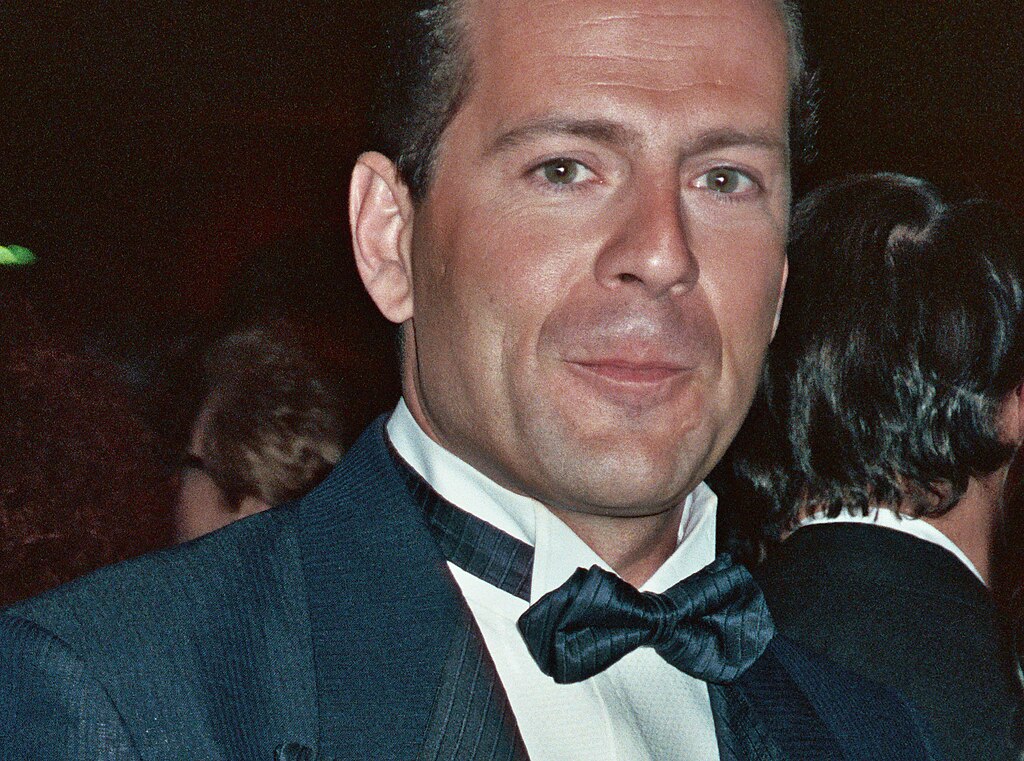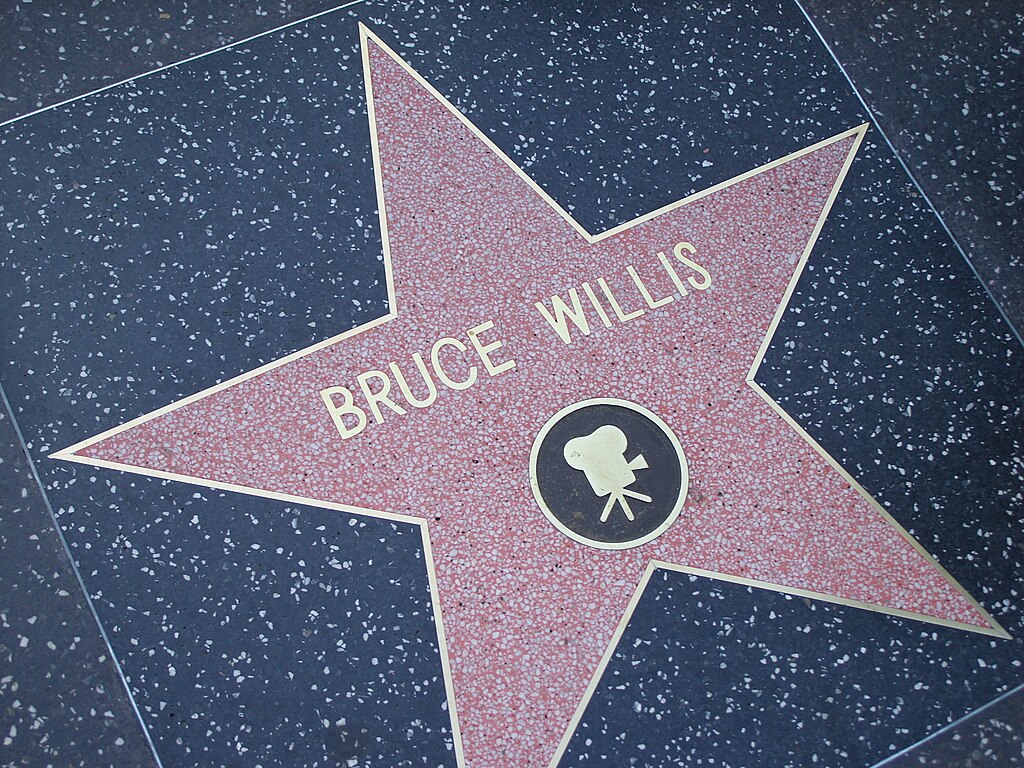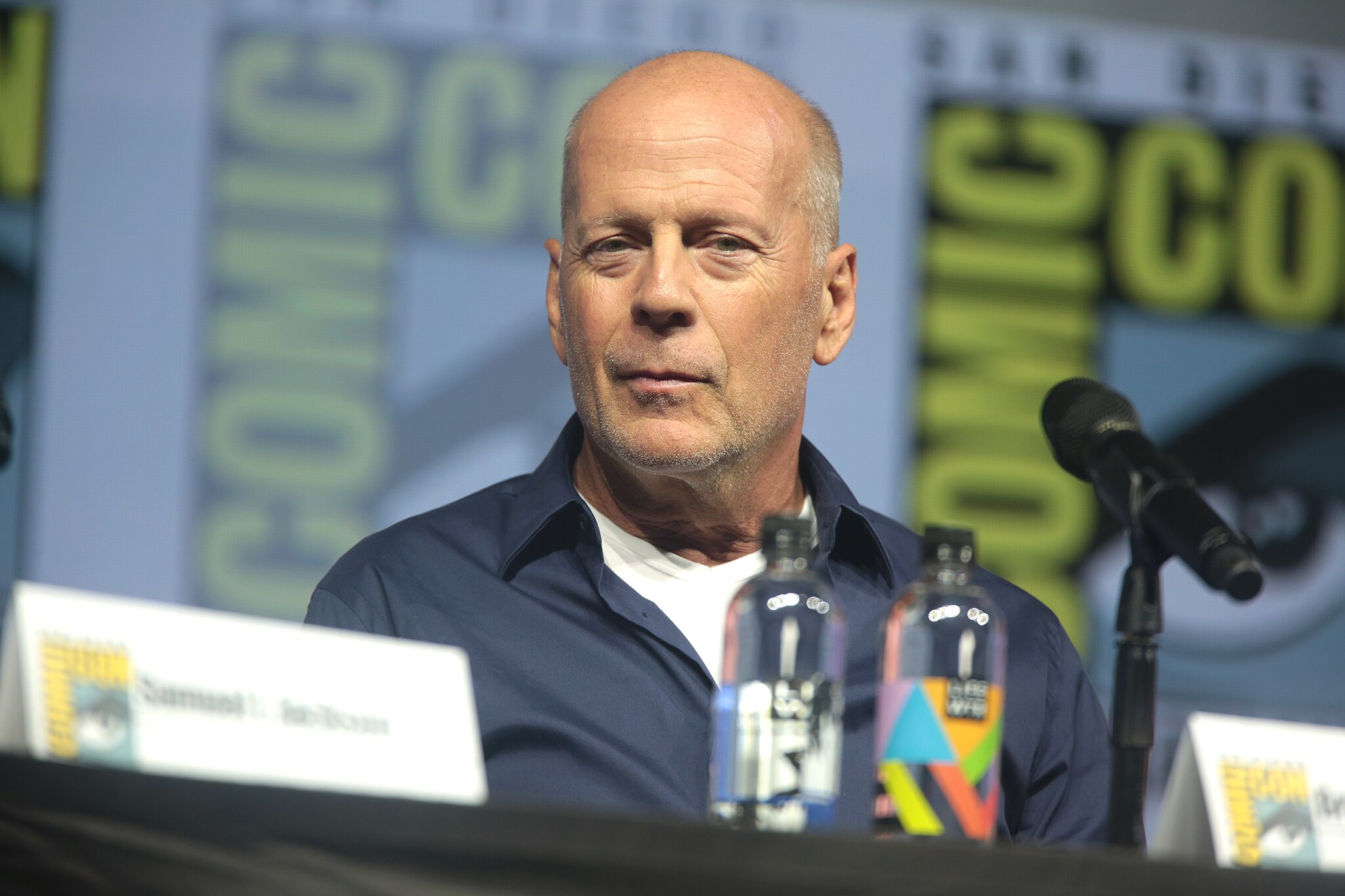With family by his side, the action icon confronts dementia with dignity and quiet strength.
The Star Who Bled, Laughed, and Changed the Game
Bruce Willis never played it safe. When he burst into the spotlight in the 1980s first on television and then in the explosive 1988 hit Die Hard, he brought something new to the screen: vulnerability. His action hero bled, got scared, made jokes. He wasn’t invincible, and that made him unforgettable.
Over four decades, Willis carved out one of Hollywood’s most eclectic careers moving from wisecracking cop to soulful psychologist and even blues musician. But in 2022, a new chapter began: his family announced he would retire from acting due to a diagnosis of aphasia, a condition affecting language and comprehension. A year later, that diagnosis progressed to frontotemporal dementia (FTD), a rare, degenerative brain disease.
It marked an unexpected turn for a man whose life had always been about motion, momentum, and finding the next adventure.
From Moonlighting to McClane: Building a Legend
Willis first captured audiences as David Addison, the quick-witted private eye in Moonlighting. The show’s blend of comedy, romance, and mystery made him a household name. But it was Die Hard that changed everything and the action genre with it.
As NYPD officer John McClane, Willis wasn’t just tough. He was relatable. Sweaty, bruised, and barefoot, McClane was the everyman thrust into chaos. His sarcasm, fear, and perseverance redefined what a hero could be. The role launched a five-film franchise and helped usher in the modern action era.
His post-Die Hard career showcased surprising range: the haunting calm of The Sixth Sense, the cryptic menace of Pulp Fiction, and the surreal energy of Twelve Monkeys. In each, he played men in crisis, men with secrets, men who like Willis himself kept going no matter the odds.

Music, Mischief, and the Man Behind the Scenes
Off-screen, Willis never shied away from showing his lighter side. Known for his playful humor on talk shows, he was the guy who might wear a steak toupee just for laughs. In 1987, he even released a blues album, The Return of Bruno, proving his voice could command a microphone as easily as a movie set.
He didn’t take himself too seriously but he took his craft seriously. That mix of humor and work ethic defined not only his career but also how he handled fame. Friends and co-stars often describe him as loyal, grounded, and endlessly curious.
A New Chapter: Love, Family, and Resilience
Now 70, Willis lives away from the spotlight, surrounded by his family. His wife, Emma Heming Willis, has become a public advocate for dementia awareness and caregiver support. Together with their daughters Mabel and Evelyn and Willis’s older children with ex-wife Demi Moore the family has shown extraordinary grace in the face of a painful diagnosis.
“Bruce is still very mobile. Bruce is in really great health overall,” Heming Willis said in a Good Morning America interview. “It’s just his brain that is failing him.”
Even as words fade, she says, moments of connection remain. “Sometimes you’ll see that twinkle in his eye, or that smirk,” she shared. “And I just get transported.”
Their love story has become a beacon for families navigating similar struggles a reminder that even heroes sometimes need help, and that vulnerability can be its own form of strength.
Image of Bruce Willis and Emma Willis Via Emma Heming Willis’s instagram @emmahemingwillis
Understanding Frontotemporal Dementia (FTD)
Frontotemporal dementia, or FTD, is a group of brain disorders that primarily affect the frontal and temporal lobes areas responsible for personality, behavior, and language. Unlike Alzheimer’s, which typically impacts memory first, FTD often causes changes in communication, emotional control, and decision-making.
According to The Association for Frontotemporal Degeneration (AFTD), FTD tends to occur at a younger age often between 45 and 65 and can progress differently for each person. There is currently no cure, but early diagnosis and supportive care can significantly improve quality of life.
Emma Heming Willis’s advocacy has helped shed light on the emotional toll of caregiving, especially for families confronting a disease that robs a person of language and expression long before memory fades. Her forthcoming memoir, Unexpected Journey: Finding Strength, Hope, and Yourself on the Caregiving Path, will explore these experiences firsthand.
Celebrities Raising Awareness for Dementia
Willis’s openness has encouraged others in the public eye to share their own experiences. Legendary singer Tony Bennett continued to perform after being diagnosed with Alzheimer’s, his family sharing updates that inspired fans around the world. Monty Python star Terry Jones also faced FTD before his passing in 2020, with colleagues honoring his wit and courage.
These stories like Willis’s have helped humanize neurological conditions too often discussed in whispers. They remind the world that talent, creativity, and love endure long after words are gone.
Tributes, Advocacy, and a Living Legacy

Fans and colleagues have rallied around Willis in recent years. Arnold Schwarzenegger spoke for many when he said, “He will always be remembered as a great, great star. And a kind man. Action heroes never retire they reload.”
Online, fans continue to share favorite moments from Die Hard one-liners to Willis’s offbeat musical performances turning nostalgia into celebration. Social media platforms have become digital scrapbooks of affection, with posts from co-stars and friends highlighting the humor, warmth, and professionalism that defined his career.
As Heming Willis prepares for her memoir release, her advocacy work continues to spotlight the need for empathy, research funding, and caregiver support.
For fans revisiting Willis’s filmography, it’s clear his legacy isn’t just about explosions or box office numbers. It’s about how he made people feel through laughter, through fear, and now, through quiet strength that speaks even louder than words.
Featured Image From: Gage Skidmore from Peoria, AZ, United States of America, CC BY-SA 2.0, via Wikimedia Commons

